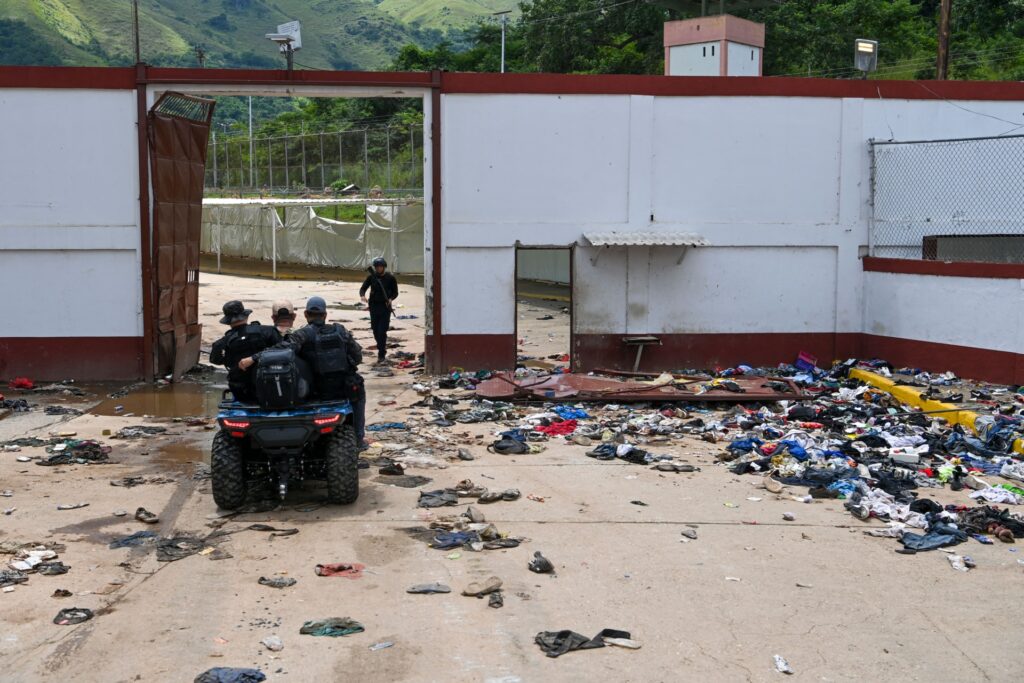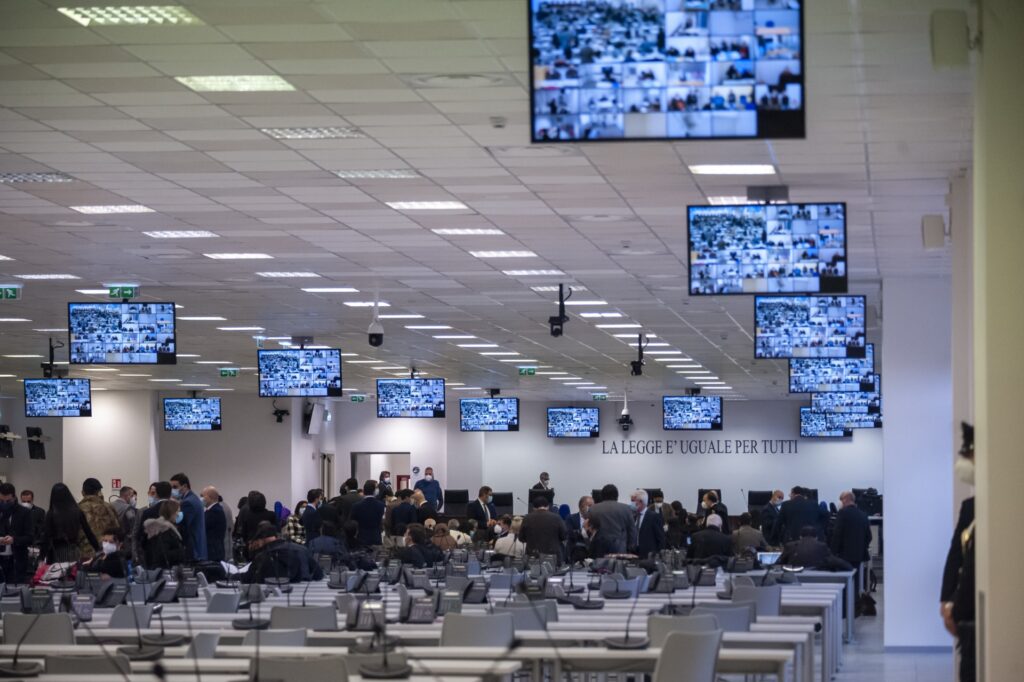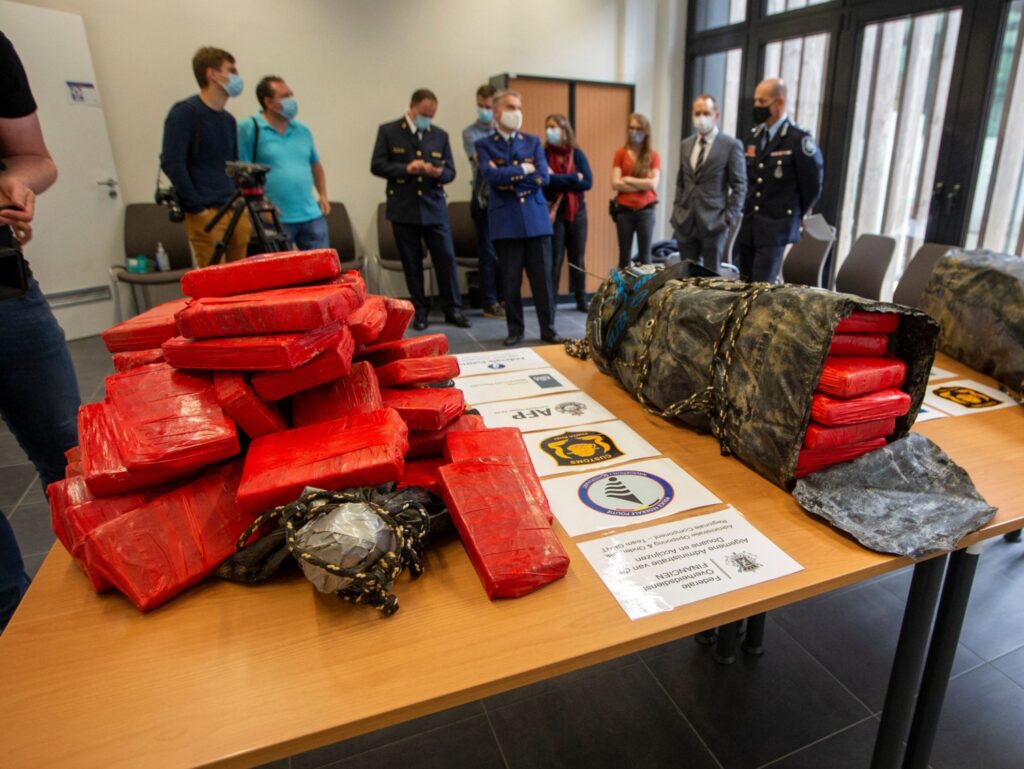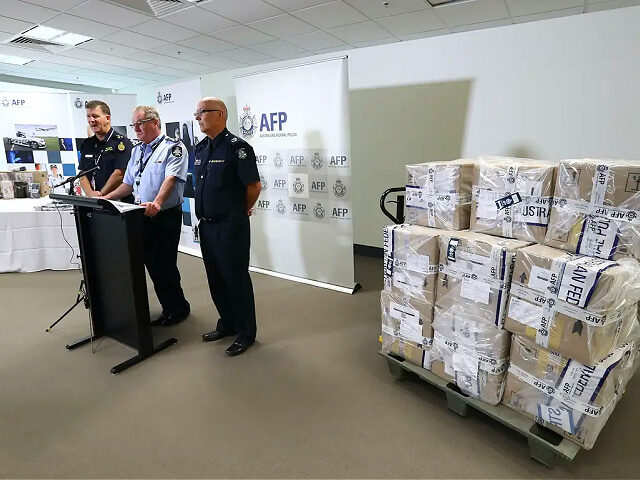The First Capital Command (PCC), Brazil’s largest transnational organized crime syndicate and Latin America’s largest drug trafficking gang, has managed to establish a foothold in Sydney, Australia, according to a report published by the Argentine news outlet Infobae on Thursday.
Infobae reported that, according to information reviewed by the news outlet and reports from the Australian Federal Police (AFP), PCC has set up two cells in Sydney operating in collaboration with a local motorcycle gang controlled by Italy’s ‘Ndrangheta mafia — one of the oldest Italian mafia organizations and a longstanding business partner of PCC in Brazil.
The PCC, described by the U.S. Department of the Treasury in 2021 as “the most powerful organized crime group in Brazil and among the most powerful in the world,” was originally founded by a group of inmates of Sao Paulo’s Taubaté Penitentiary in 1993 following a violent soccer match between inmates that ended with at least two dead.
Over the past 30 years, PCC has dramatically grown into a full-fledged transnational crime and drug trafficking syndicate boasting over 40,000 members and some 60,000 “contractors.” The PCC has expanded its activities beyond Brazil to the United States, as well as other South American, African, and European nations.

Members of the Bolivarian National Police patrol on a quad bike at the Tocoron prison in Tocoron, Aragua State, Venezuela, on September 23, 2023. The bosses of the Tren de Aragua gang, which used Tocoron prison as a base for their international crime operations, escaped. (YURI CORTEZ/AFP via Getty Images)
PCC is believed to have formed alliances with other South American drug trafficking organizations, including Venezuela’s Tren de Aragua, which also has an active presence in the United States.
The criminal activities conducted by PCC — which range from murder, prison riots, drug and human trafficking, bank and highway robberies, kidnappings and ransom, money laundering, bribery, loan sharking, and obstruction of justice — reportedly have generated revenues of at least $1 billion since 2020.
In addition to being responsible for roughly 50 percent of Brazilian cocaine exports to Europe, PCC’s partnership with the Italian ‘Ndrangheta mafia, Infobae reported, is what allowed the Brazilian crime syndicate to establish its Australian cells in the past two years.
‘Ndrangheta has maintained a presence in Australia since at least the start of the 20th century. Experts have described the Australian branch of the ‘Ndrangheta organization as “much more aggressive and violent” than its original Italian parent group.
“The ‘Ndrangheta is flooding Australia with drugs and rising through the ranks of Australian biker gangs,” a report from the Australian Federal Police reportedly reads. “Members of the ‘Ndrangheta have become so powerful here that they control some of these local biker gangs who move drugs for them or carry out acts of violence on their behalf.”

A view of a specially constructed bunker for the first hearing of a maxi-trial against more than 300 defendants of the ‘ndrangheta crime syndicate, near the Calabrian town of Lamezia Terme, southern Italy, on Jan. 13, 2021. (Valeria Ferraro/LaPresse via AP, File)
Infobae claimed that authorities have seen an evolution in the modus operandi of the PCC in Australia in recent years, going from simply supplying drugs from Brazil to local traffickers to becoming a “stronger and more direct” vehicle for shipping thanks to its presence in the country. The PCC has reportedly been able to move men from one continent to another and offer “logistical services” to buyers in Australia.
One such example, the Argentine outlet explained, is the case of Brazilian repair diver Bruno Borges, who was found dead in 2022 near the Australian Newcastle harbor. Borges, 31 at the time of his death, is believed to have flown to Australia after being hired by PCC drug smugglers to help retrieve $20 million worth of cocaine hidden in the hull of a cargo ship.
Infobae reported that authorities believe Borges himself had been the man who concealed the cocaine in Brazil and therefore knew the exact location of the hidden drugs in the ship.
The outlet asserted that there is a growing alert for the trade routes between Australia and the Pacific Islands, which could be “strategic in terms of their location from a criminal point of view as well.”
“The Pacific islands are located along the trade arteries linking Asia and the Americas with Australia and New Zealand, which have some of the most lucrative drug consumer markets in the world,” Virginia Comolli, the head of the Pacific Program of the Global Initiative Against Transnational Organized Crime (GI-TOC), a Geneva-based non-government organization, explained to Infobae.
Comolli highlighted how “Asian syndicates, Central and South American cartels, biker gangs and criminals of various kinds use the islands as transit points for cocaine, synthetic drugs and, to a lesser extent, heroin.”

Journalists attend a press conference on a seizure of some 200 kilograms of cocaine, at the Federal Police East Flanders station, in Dendermonde, on June 25, 2021. Federal Judicial Police (FGP) East Flanders checked a ship carrying orange juice from Santos, Brazil, to the Ghent harbor. The Australian federal police had shared useful information with the FGP East Flanders as part of an ongoing investigation. (NICOLAS MAETERLINCK/Belga/AFP via Getty Images)
Infobae claimed PCC is trying to expand its supply in the drug market, in addition to the existing cocaine and marijuana trade, and has been long interested in expanding to synthetic drugs such as methamphetamines or synthetic opiates such as fentanyl.
The outlet stressed that the Brazilian government has recently inaugurated a new trade route with Vanuatu. Infobae warned that the route, which has seen tonnes of chicken arriving since last year, could be exploited for new drug trafficking routes.
“Unfortunately, trade routes are often exploited by organized crime to transport illicit goods, and the Pacific islands present certain vulnerabilities that could make them very attractive to Brazilian drug traffickers,” Infobae stated.
Comolli noted that there are two categories of factors that facilitate illicit activities on the islands.
“On the one hand, the existence of competitive tax regimes and corporate law structures, open maritime registries and golden passport schemes that are intentionally implemented by Pacific administrations to attract foreign companies and investors,” Comolli said.
“On the other hand, vulnerabilities range from limited oversight and enforcement capacities to inadequate technical expertise, to weak due diligence processes and, in some cases, corruption of public administration,” she continued.
Christian K. Caruzo is a Venezuelan writer and documents life under socialism. You can follow him on Twitter here.

COMMENTS
Please let us know if you're having issues with commenting.